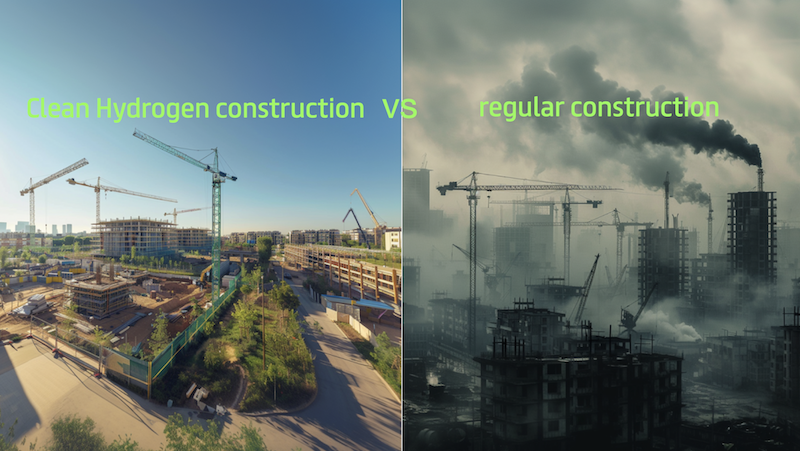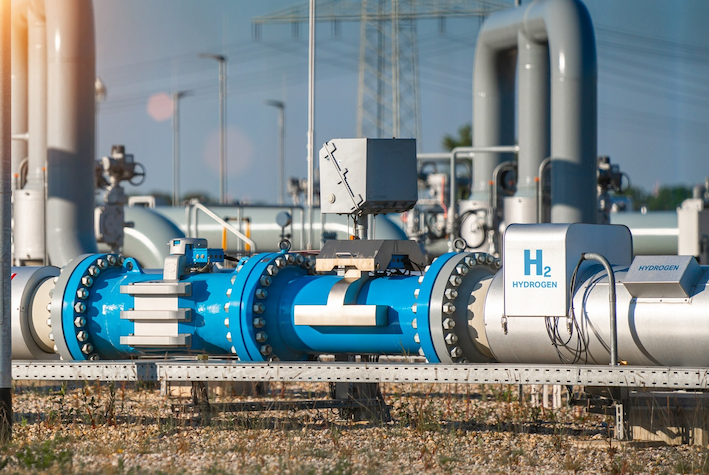Ryse Hydrogen’s goal is to unlock the U.K’s Hydrogen economy, by developing the first network of green production plants. But why should we care so much about ‘green’ Hydrogen?
Answer: because Hydrogen will help us transition to a sustainable energy economy, enabling us to reach net zero whilst creating thousands of ‘green’ jobs.
To fully understand hydrogen’s benefits, we can review the existing energy economy and some of its shortfalls.
Emissions from the fossil fuel economy have significantly (some say irreparably) degraded global air quality. The carbon pumped into the atmosphere as a result of fossil-fuel use has substantially changed the world’s climate. The health and climate impacts have become entirely unacceptable.
Energy demand is growing and the raw materials of the fossil fuel economy are shrinking. Natural gas, oil and coal supplies are never replenished as they are consumed, creating urgent need for alternatives.
Most consumers of fossil fuels don’t live where those fuels are extracted. For many people and governments, the pressure on this areas, both economic and environmental, is immense, and causes great regional conflict and divide.
Developing economies are often vulnerable when energy systems are required to boost their economies. The fossil fuel economy puts nations under the influence of energy suppliers, creating a damaging lack of economic independence that has become unacceptable.
Hydrogen has many benefits that address these concerns, these include:
1. Electrolysis is the process of separating water into oxygen and hydrogen. If hydrogen is produced in this way it is entirely sustainable. Electrolysis requires energy, and if that energy comes from wind turbines or solar farms then the resulting hydrogen is called ‘green’. Therefore green hydrogen is a truly ‘renewable’ source of energy, that has no requirement of carbon-burning products and causes zero pollution. Once produced hydrogen can then be used in a fuel-cell to produce electricity. The only by-products of the fuel cell are water vapour and heat. Any waste energy can even be used for heating.
2. The use of hydrogen slashes pollution levels. When hydrogen meets oxygen in a fuel cell, the produced result is energy in the form of electricity. This electricity can be used to power big and heavy vehicles, like Ryse Hydrogen’s zero-emission double-decker hydrogen buses, manufactured by Wrightbus in Northern Ireland. The advantage is no greenhouse gasses or other harmful emissions are produced through the use of hydrogen fuel cells.
3. Hydrogen can be produced from numerous sources, and locally; meaning it can either be produced where it will be used, or centrally, and then distributed like other gases.
Ryse Hydrogen’s goal is to unlock the U.K.’s hydrogen economy. By developing the first network of Hydrogen production plants Ryse aims to create and maintain thousands of highly-skilled ‘green’ jobs with the crucial objective of lowering emissions for the good of the planet.
There are of course cost restrictions that have hindered the mass adoption of Hydrogen, but the unique aspect of Hydrogen as a fuel is that it doesn’t require end-users to change their behaviour. Unlike electric batteries a hydrogen fuel cell can produce enough energy to power a vehicle across distances that match those covered by a tank of diesel. Similarly it takes the same amount of time to refuel a hydrogen vehicle as it does to refill a diesel vehicle. Hydrogen can in theory be carried across existing gas pipe networks to power our boilers to remove emissions from home heating. All these benefits have been at the heart of a massive surge in private companies now making Hydrogen their business, and governments all over the world are catching up and investing in the infrastructure needed to support a hydrogen economy. With a hydrogen industry predicted to be worth more than 2.5 trillion as soon as 2050 it’s not surprising that hydrogen is suddenly in the global spotlight.
Hydrogen fuel cells are already being used to power buses and trucks, and hydrogen-use and technology is advancing rapidly in shipping, trains and aviation. Given there is no need for a heavy battery with a hydrogen fuel cell it is the ideal fuel solution for big methods of transportation.
As volume emerges in Hydrogen production, so the cost of hydrogen will come down, and its use will then be widespread across industries as well as transport. Many industries have the opportunity to create their own hydrogen locally, to fuel their businesses and speed up their journeys to decarbonisation.
As advances in hydrogen technology and its uses increase, hydrogen is becoming increasingly affordable. With an ever growing number of partnerships between governments and businesses, universities and non-profit organisations, hydrogen is set to be the beating heart of any energy economy that is truly sustainable.
For more about Ryse Hydrogen click here…






